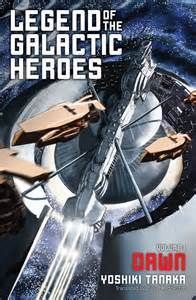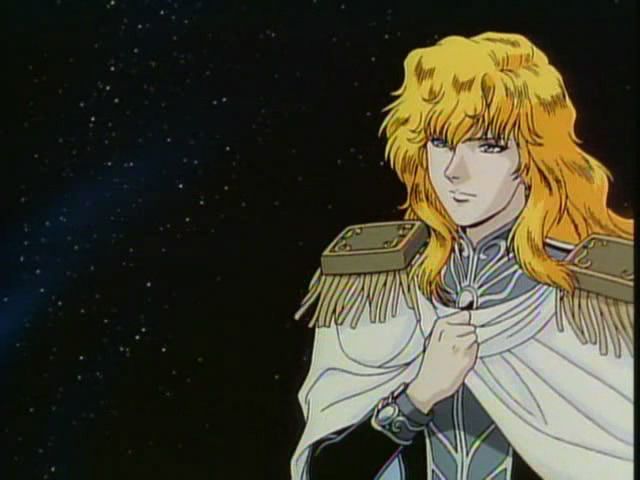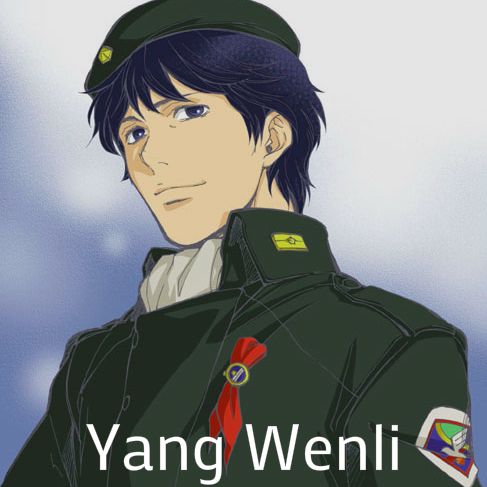Guest Post by Penny Kenny: Legend of the Galactic Heroes, Volume 1
Tuesday , 15, March 2016 Book Review 11 Comments LEGEND OF THE GALACTIC HEROES, VOLUME 1: DAWN by Yoshiki Tanaka; translated by Daniel Huddleston (Haikasoru, tpb, 292pp, $15.99)
LEGEND OF THE GALACTIC HEROES, VOLUME 1: DAWN by Yoshiki Tanaka; translated by Daniel Huddleston (Haikasoru, tpb, 292pp, $15.99)
In 1982, the already prolific mystery, SF, and fantasy author Yoshiki Tanaka published Ginga eiyu densetsu (Legend of the Galactic Heroes), the first book in what would become a ten volumes series. It would go on to spin off four volumes of side stories, a manga, over 150 episodes of an animated video series, and several theatrical movies, as well as win the Seiun Award (the Japanese equivalent of the Hugo) for best science fiction novel in 1987. In other words, Legend of the Galactic Heroes is a legend in Japan. Now, thanks to Viz Media’s Haikasoru imprint and translator Daniel Huddleston, the first volume is available in an official version for the English-reading audience.
The easy way to describe LOGH is to say “19th century European wars in space”. On one side is the Galactic Empire, ruled by the ailing apathetic Emperor Friedrich IV. On the other is the nominally democratic Free Planets Alliance. The two powers have been at war for centuries, continuing, as the author says, “mainly out of inertia.” But that is changing. Twenty-year-old Count Reinhard von Lohengramm is promoted to command of the Imperial Space Navy. In the Alliance, twenty-nine-year-old Yang Wen-Li rises through the ranks to become a senior officer in the Fleet. These two tactical geniuses clash over the course of three battles in this first volume, while political intrigue and governmental incompetence surround them. And in the background, the semi-independent Phezzan Domain pulls the strings to achieve its own goals.
 An intriguing fact about LOGH is, that despite the title, there really are no heroes at this stage. Unless you define a hero as a very competent man. Lohengramm is called the “Golden Brat” by his allies and enemies, and it a suitable sobriquet. While he can mouth the proper platitudes, he’s joined the Imperial Navy to achieve revenge for an act that happened when he was ten-years-old. If he has to bring down the Empire to reach his goal, so be it. Despite his brilliance, he’s still very much an angry, spoiled child at times.
An intriguing fact about LOGH is, that despite the title, there really are no heroes at this stage. Unless you define a hero as a very competent man. Lohengramm is called the “Golden Brat” by his allies and enemies, and it a suitable sobriquet. While he can mouth the proper platitudes, he’s joined the Imperial Navy to achieve revenge for an act that happened when he was ten-years-old. If he has to bring down the Empire to reach his goal, so be it. Despite his brilliance, he’s still very much an angry, spoiled child at times.
Yang comes off a bit better. He became a soldier so he wouldn’t have to pay for his schooling. The fact that he’s good at making lemonade of the High Command’s lemons bemuses him somewhat. His goal is to retire and continue his studies, which means he has to stay alive. And in keeping himself alive, he keeps his men alive, making him a valuable man to the Alliance. Of the two men, Yang is the more philosophical, tending toward thoughts such as:
 “…there was no fundamentally high or low ground morally between a great general and a stupid one. When a foolish general got a million allies killed, a great general killed a million enemies. That was the only difference, and if viewed from the standpoint of absolute pacifism….Both were mass murderers.”
“…there was no fundamentally high or low ground morally between a great general and a stupid one. When a foolish general got a million allies killed, a great general killed a million enemies. That was the only difference, and if viewed from the standpoint of absolute pacifism….Both were mass murderers.”
Surrounding them are people who cynically use death and war to gain and hold political power. There are a few lights, though, such as Lohengramm’s childhood friend Kircheis and Yang’s ward Julian, to keep readers from becoming complete misanthropes.
Tanaka sketches his characters lightly, but with enough detail for readers to form a strong impression of their personality. The battles are handled in the same way. Without going into minute detail over every shot fired and hit scored, Tanaka – and his translator Daniel Huddleston, who can not be given enough credit – give readers a clear, vivid picture of the action:
“Energy-neutralization fields ruptured, and hulls were pounded by unendurable shocks. The concussions finally breached the interiors, filling the ships with explosions, and soldiers and officers were vaporized by hot, murderous gales.
Pulled by the planetary gravity, shattered vessels that had lost propulsion were now falling. Among the planet’s inhabitants, children forgot their hunger for a brief while, enthralled by the ominous beauty of the countless shooting stars screaming across the night sky.”
Legend of the Galactic Heroes is a future history, thoughtfully worked out. In some ways it reads like a non-fiction tome, having an almost detached viewpoint of the events and people. Some readers might be put off by that style, but I think it gives the events an added weight.
LOGH: Dawn is a fast, entertaining read that should appeal to fans space opera, classic SF anime, and history. It’s well worth checking out.
—
Penny Kenny has headed a reading-math program designed to help first grade students with learning difficulties, been an elementary library paraprofessional in a rural school district, and is now a library assistant in a public library. Her reviews regularly appeared in Starlog from 1993 to the magazine’s unfortunate demise in 2009, at Comics Bulletin from 2007-20012, and she has published several e-novellas under various pen names.
How does the translation/localization read?
I’m interested in checking it out, but have generally been disappointed with most English adaptations I’ve picked up of Japanese SFF books (The Slayers light novels, Tomino’s Gundam Trilogy, and Battle Royale).
-
I’m blind and braindead and didn’t see the block quote. Nevermind!
-
I didn’t have a problem with Battle Royale’s translation. Didn’t feel as stiff as some manga and videogames I’ve played that had a budget translation job done.
Tomino’s Gundam novels were entertaining enough and I didn’t have a problem with the translation there either, though I’d still recommend the movie trilogy over the book. I’ve heard that even in the raw Japanese the Tomino novels aren’t considered particularly good by the fan base.
All that said, the article convinced me to go ahead and order the first volume of LoGH from Amazon. Always heard good things about the anime on classic anime podcasts.
As cool as this is, I do wish someone would license the Captain Tylor novels.
-
Yes! I meant to say that very thing in the review and forgot. I would love to see how Tylor works on paper. Well, no one ever thought we’d get LOGH, so there might be hope for Tylor.
So I take it this is a novel and not a manga?
-
Definitely a novel. I believe the anime is coming out later this Spring/early in the Summer, but I haven’t heard anything about the manga being translated.
I saw bootlegs of LoGH almost twenty years ago, subtitles by Sue Shambaugh. I’ll be quite interested in this translation. I’ll give LoGH credit for preparing me for life in a terminally decadent late-stage civilization, as the actions of our political and military “leaders” would have mystified me otherwise.